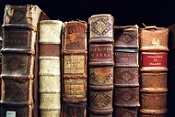I know I shouldn't look. It never ends well. But when I got to the end of an article about W's new memoirs, I did it anyway. I read the user comments.
"Librals [sic] just can't stand the thought of a smart Republican like Bush being President," said one.
"Bush says its okay for Americans to get waterboarded," said another.
"What is wrong with me that I'm reading these again?" said John. "I mean, seriously?"
 Librals, of course, said nothing of the kind, nor did Bush. It was more poor argumentation from a society that seems increasingly unable to separate fact from fallacy, evidence from assertion. And yes, for me it all ties into the validation theory. We assert whatever set of "facts," real and imaginary, validates us. This is why people so zealously believe that which is demonstrably untrue, like, say, Obama being a Muslim Nazi non-citizen. Hell, pick one.
Librals, of course, said nothing of the kind, nor did Bush. It was more poor argumentation from a society that seems increasingly unable to separate fact from fallacy, evidence from assertion. And yes, for me it all ties into the validation theory. We assert whatever set of "facts," real and imaginary, validates us. This is why people so zealously believe that which is demonstrably untrue, like, say, Obama being a Muslim Nazi non-citizen. Hell, pick one.
Which brings us to this week's Great Read. On the surface, it actually has little to do with the sort of argumentation I'm discussing. In her Newsweek editorial, "What Kids Should Be Learning in Science Class," Sharon Begley argues that instead of making science students memorize the minutiae of Ohm's law, which most of them will never need to know, we should teach them how to spot bullshit masquerading as science. To make them better thinkers.
"Hallelujah!" I thought as I read this, fresh off the heels of Bush waterboarding Obama's family Mullah. If my generation had learned to think instead of learning the names of the veins in fetal pigs, perhaps we wouldn't be mindlessly buying into counterproductive nonsense like all-electric cars and high-speed rail (this latter article, fittingly, was on the page opposite Begley's).
And perhaps, just perhaps, a fellow who demands that scientists pony up evidence to back their claims would demand likewise from himself.